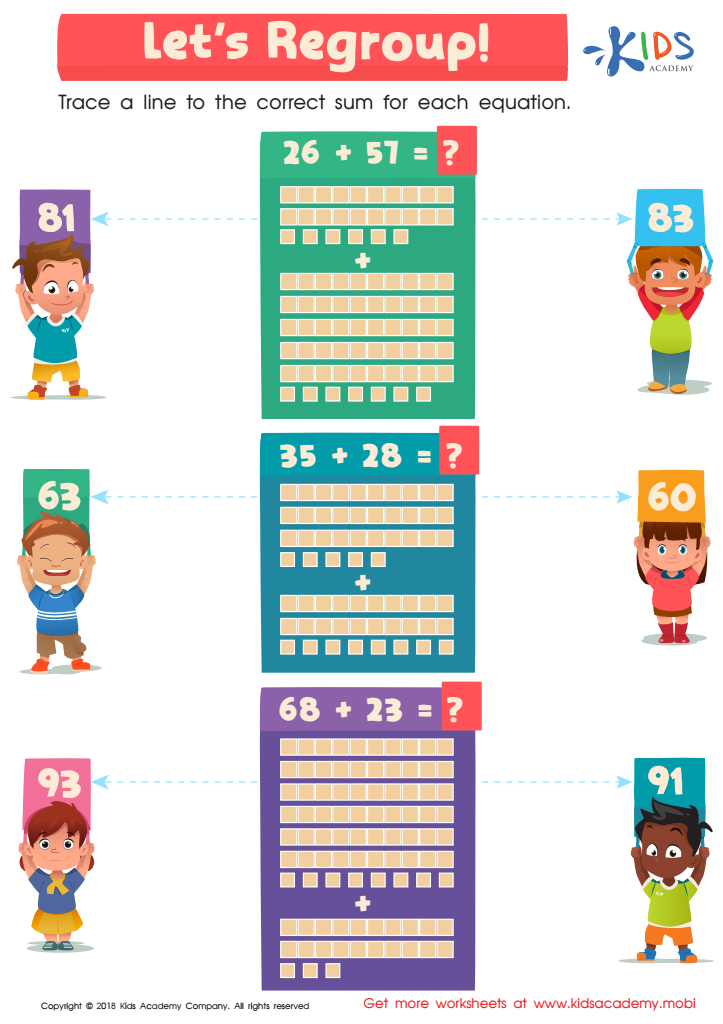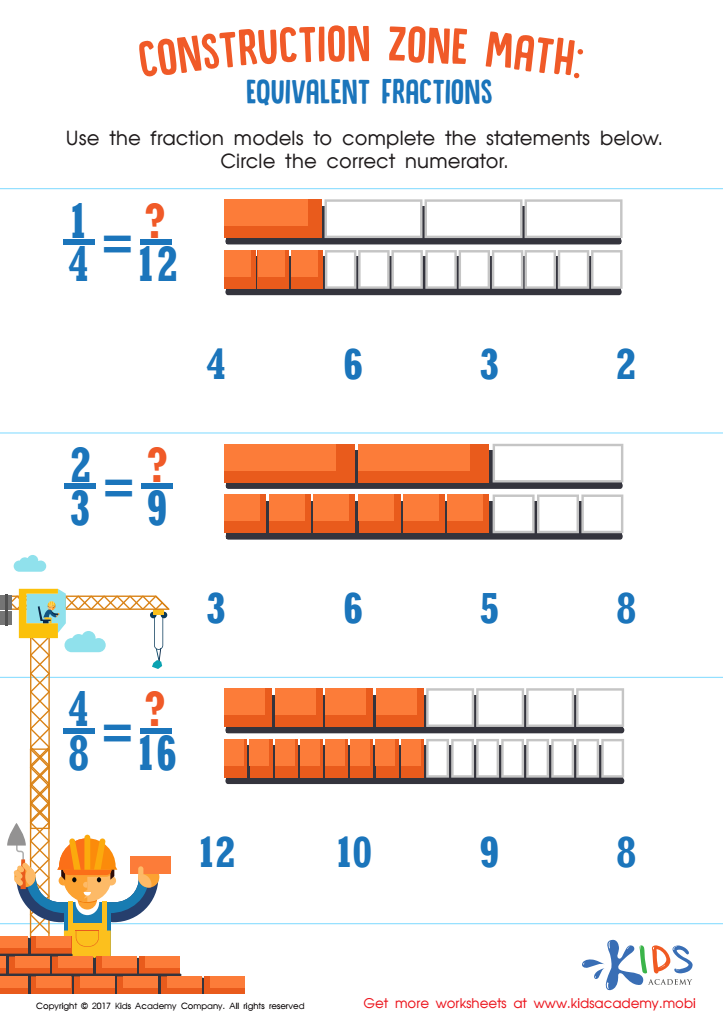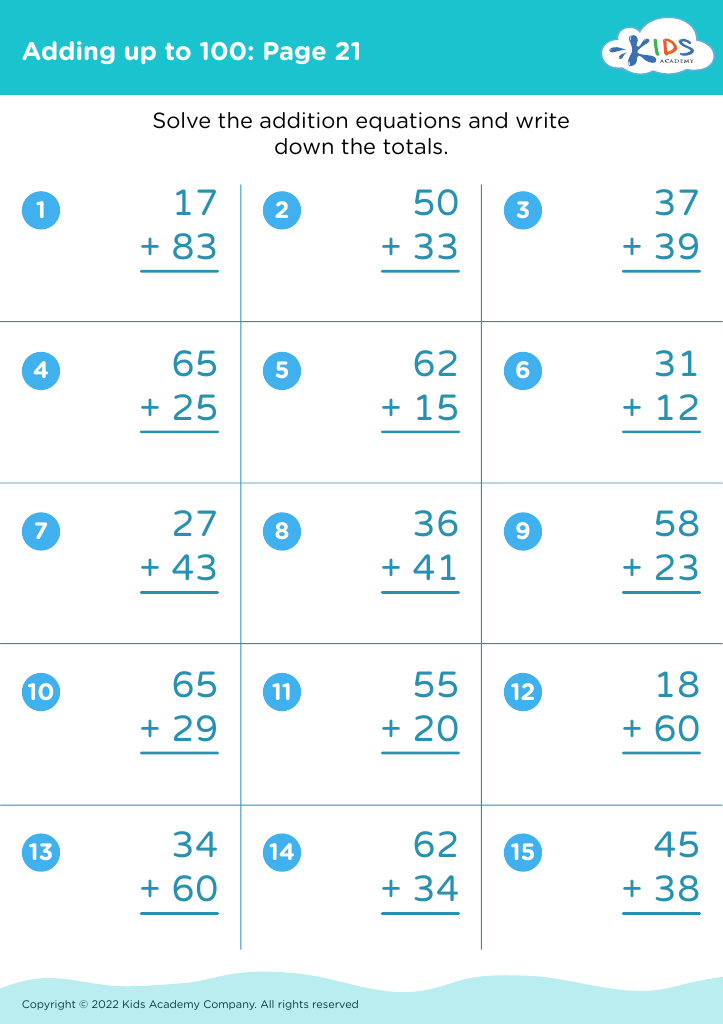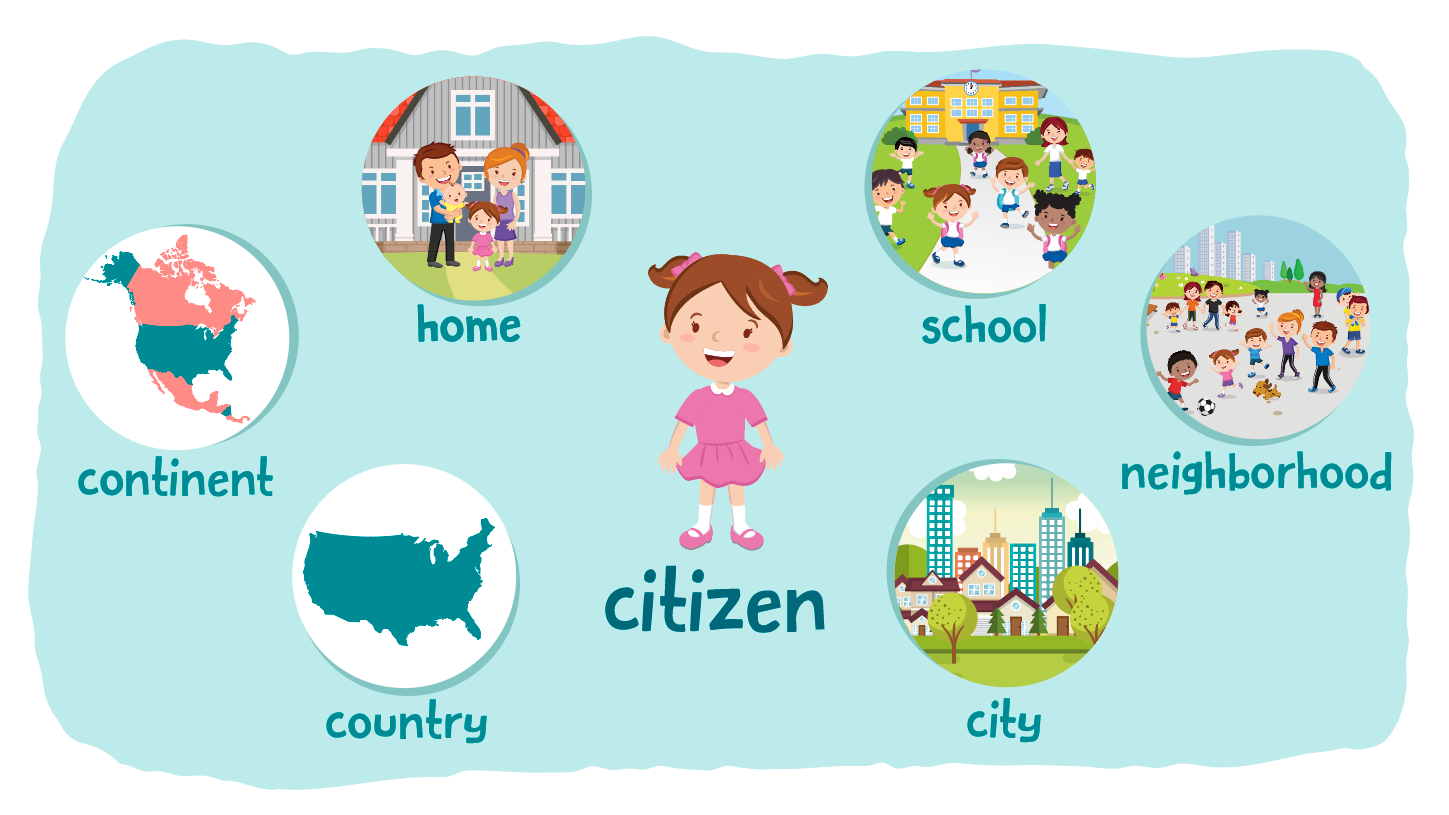Practicing Arithmetic Skills Worksheets for Ages 3-9
3 filtered results
-
From - To
Discover our engaging practicing arithmetic skills worksheets specifically designed for children ages 3 to 9. These worksheets provide a fun and interactive way for young learners to build foundational math skills such as addition, subtraction, simple word problems, and recognition of numerals. With colorful illustrations and age-appropriate exercises, our worksheets make math enjoyable and accessible. Perfect for classroom use or at-home practice, they'll help enhance your child's confidence and proficiency in arithmetic. Whether your little one is just starting to learn numbers or refining their skills, these resources will support their learning journey effectively. Start fostering math enthusiasm today!


Let's Regroup Worksheet


Equivalent Fractions Worksheet
Practicing arithmetic skills in children aged 3-9 is crucial for their cognitive and academic development. At this early stage, children are like sponges, eager to absorb information, and building a solid foundation in arithmetic sets the stage for future learning. Mastery of basic arithmetic helps in developing logical thinking, problem-solving skills, and even fosters creativity.
Engaging in arithmetic practice enhances a child’s confidence and can lead to a more positive attitude toward math as they progress through school. Early proficiency in numbers enables students to tackle more advanced mathematical concepts with ease, spurring their academic growth. Furthermore, arithmetic skills are not just limited to academics; they are applicable in everyday situations such as shopping, budgeting, and time management.
When parents and teachers actively participate in developing these skills, they promote a collaborative learning environment that reinforces the child’s understanding. Activities like counting objects, simple addition and subtraction games, or using real-world scenarios make math engaging and fun. Ultimately, fostering arithmetic skills supports overall brain development and lays the groundwork for a lifelong appreciation of learning and problem-solving, crucial for success beyond the classroom.
 Assign to My Students
Assign to My Students

















